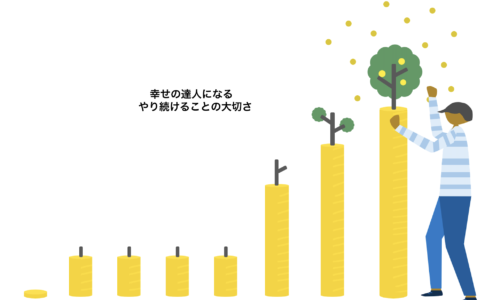テニス界のヒーロー、Novak Djokovic (ノバク・ジョコビッチ)をご存知でしょうか。
2014年から2016年まで世界ランキング1位に連続在位して、通算では276週間ランキング1位の記録を持っています。ちなみに、彼よりも長く通算1位の座を守っていたのは、ロジャー・フェデラーとピート・サンプラスだけとなります。
その、ジョコビッチですが、2003年にプロデビューをしましたが、その翌年2004年の世界ランキングは680位。その3年後には何と世界ランキング3位、そして2011年にはついに1位まで上り詰めています。
さて、ここからが興味深い話となります。
世界ランキング3位だった2014年の彼の試合における判断成功率は49%、その3年後の2007年の判断成功率は52%、更に3位から世界ランキング1位になった2011年の判断成功率は55%に改善したに過ぎませんでした。
つまり、49%- > 52% -> 55% のわずかな進歩が、680位 -> 3位 -> 1位 という飛躍を可能したと言えます。
プロの世界では、皆が凌ぎを削っていてわずかな差が結果に大きく響いてくるとはよく言われることですね。プロの世界でなくても、誰でも何かを習得するときや、目標に向かって頑張っている時、このジョコビッチのケースは私たちに多くを教えてくれます。
努力をコツコツ継続して、例え上手く行かないと感じたり、停滞していると思っても決してやめないこと。その先に大きな成果が待っています。
今回のお話は、Stephen Duneierさんの、TED Talkでのスピーチ(How to Achieve Your Most Ambitious Goals)を引用させてもらっています。
原文はこちら
Back in 2004, when he first became a professional tennis player, he was ranked 680th in the world. It wasn’t until the end of his third year that he jumped up to be ranked third in the world. In 2011, he became the number one ranked men’s tennis player in the world, started earning an average of 14 million a year in prize money alone and winning a dominating 90% of his matches.
Now, here’s what’s really interesting about all of these very impressive statistics. Novak doesn’t control any of them. What he does control are all the tiny little decisions that he needs to make correctly along the way in order to move the probability in favor of him achieving these types of results. And we can quantify and track his progress in this area by taking a look at the percentage of points that he wins.Because in tennis the typical point involves one to maybe three decisions, I like to refer to this as his decision success rate. So, back when he was winning about 49% of the matches he was playing, he was winning about 49% of the points he played.
Then to jump up, become number three in the world, and actually earn five million dollars a year for swinging a racquet, he had to improve his decision success rate to just 52%.Then to become not just number one but maybe one of the greatest players to ever play the game, he had to improve his decision success rate to just 55%. And I keep using this word “just”. I don’t want to imply this is easy to do, clearly, it’s not.But the type of marginal improvements that I’m talking about are easily achievable by every single one of us in this room. And I’ll show you what I mean.












コメントを残す